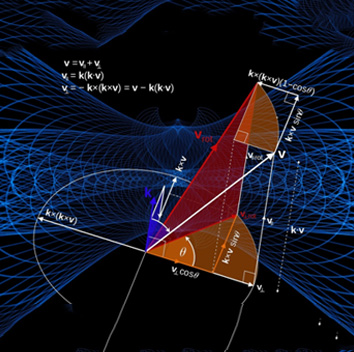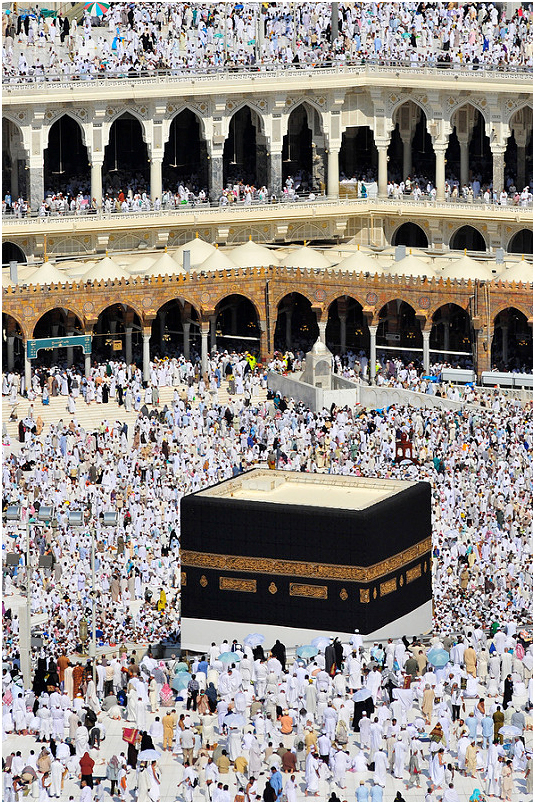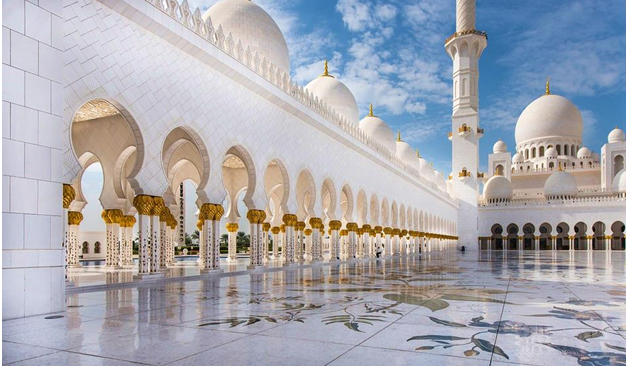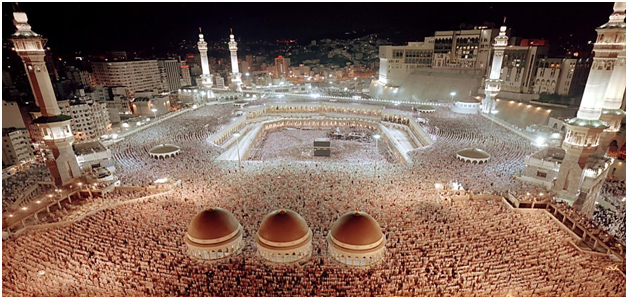What does it all mean?

Photography: MD Phillips
So many ask. Islam provides a very simple and satisfying answer that can bring peace and happiness to your entire being forever.
Life has a purpose—ibadah. And a nature—it’s a test. (The word ibadah is a holistic word which we’ll describe below.)
When you realize this as the meaning of life, everything about your own life will fall into place. Few religions and philosophies—if any—offer such a straightforward and compelling answer to one of life’s biggest questions. It’s one of the things that makes Islam so appealing to people all over the world. Please read on.
Meaning in life must relate you to all that you experience and lead to some ultimate end.
Nothing is made without purpose. Everything around us has a purpose or is a by-product of some purpose (and even waste takes on a purpose as it becomes part of some process).Even if one believes that stars, planets and life came about from processes caused by random events, they still have a purpose in that sense(i.e. to fulfill their roles in those processes). We too could be said to have a purpose or function within the earth and its natural systems.

Photography: MD Phillips
The answer can never be given by sciencethough because it deals only with things within the universe. Physics can only describe the purpose or function of things in the universe with other things in the universe. But you can’t do that for the universe as a whole. You can’t say the purpose of the universe is to be the universe (i.e. to maintain stars, gravity, life, etc.). That would be circular thinking.
And thus you couldn’t do that either when speaking of the ultimate purpose of things that make up the universe (i.e. stars, planets, gravity, humans, etc.) As with anything, you can’t really define the purpose of something by referring back to itself.
Its purpose or function must come from something other than itself or be relative to something else—something not of the universe, something “outside” of it. So the answer to what our purpose or ultimate function is must come from or be relative to something beyond the universe.
And whatever the purpose of the universe is, everything within it must share in that purpose.
So even more compelling is the question of what the purpose of man is. For unlike plants, animals, rocks, planets, stars, etc.; we have two profound things—intellect and the ability to choose beyond mere instincts. With our profound intellects, we can use the things and natural systems around us for our own purposes or even destroy them. And with our freedom to choose, we can go against our instincts, defy even whatever our purpose may be, and commit evil.
To those who may say it was all by random events and chance, the reply is that we and the universe as a whole are a product of such extreme precision and fine tuning (see article) that it is almost incomprehensible that it could have come about—even if evolved over time—by just random chance. This is in fact the common sense view and it will never go away or be surpassed in terms of its power and clarity to explain.
Why would it be any different with the most magnificently designed artifacts we have ever encountered—the universe and ourselves?
As the Quran says,
“Those who remember God…and think deeply about the creation of the heavens and the earth, (saying): Our Lord! You have not created (all) this without purpose….” (3:191)
So could the creator of the universe, who made it with such precision that “If even one of a host of physical properties of the universe had been different, stars, planets, and galaxies would never have formed,”1 have just done it all for nothing?

How could such a wise creator who must have created everything (including wisdom itself) and made the universe with such astonishing precision [see article] make a mistake in this regard?
Could such an amazing creation as the human being whose miraculous physical body is surpassed only by his mysterious yet awe-inspiring conscience (soul, mind), have no point?
Could the one who made mathematics, the “laws” of physics, the very concepts of knowledge, wisdom, etc. have made a mistake or even been neglectful in this regard?
So again, if everything in the universe is carefully designed and has a purpose relative to something else in it, wouldn’t the universe as a whole have a purpose relative to something outside it?
If the universe is created, then like anything created it can only derive its purpose from its creator not itself. Only a creator gives purpose to its designed creation and since nothing can create itself nothing can give itself purpose.
So we in the universe cannot give ourselves purpose, we must seek it in our creator.
If God created us (and the universe) then surely he had a meaningful purpose for us beyond just thriving in our physical environments. There must be an overall purpose—even for animals, plants, rocks, planets, etc.
Ask yourself: how could the one who actually created mercy and love just abandon us? How could the one who created the very concepts of order and knowledge and gave us the capacity to think not reveal to us our very purpose?
(As to the question why the creator does not speak to us and tell us directly, see “The Nature of Life” article after finishing this one.)
We should not only have a purpose but all this should be leading to something for which the Creator (God) will eventually express Himself to us.
Well, did God not give us miraculous minds which not only wonder about things but can actually figure them out with information and logic? Then purpose should be something all of us can see by using common sense and reflecting upon the signs around us:
“Truly, in the creation of the heavens and the earth, and in the alternation of night and day, there are indeed signs for people of understanding.” (Quran 3:190)
It should come naturally to us once we think about it seriously.
“This is the innate nature which God instilled in mankind—there is no altering God’s creation…though most people do not realize it. …” (Quran 30:30)
It should be very obvious and natural to anyone, if we can clear away all the confusion brought about by life and society. (see article)
So then why did God create us? What is our purpose?
Think of a man who built a chair. He obviously made it for a purpose. The chair is for him to sit on or to be sold or to simply decorate the room. Ultimately we can say the man built the chair to do something for him or his interests in some way—to do something that would please him. Aren’t these always the reasons things are made or created?
Why would it be any different for us? Wouldn’t we also be made by God to please Him in some way by doing things for Him—things he likes or expects of us? That would be our purpose of creation then—to please God by doing the things for which we were created.
But what could those things be?
Think of parents. They “create” their offspring. Generally, parents-to-be would be pleased to have children; so they procreate. What do children do that pleases parents? Sometimes they’re expected to serve (i.e. on the family farm, when parents get old, etc.). So service is one way children please their “makers” and fulfill the purpose of their creation.
There are other ways children fulfill their purpose by doing things to please their parents. Parents are pleased when children show them love, loyalty, gratitude, admiration and obedience. Parents want their children to remember them often and to seek their help in times of need. They hope their children will praise them amongst friends rather than speak ill of them. They want their children to share their values and to support good things in life.

In so doing, children please their parents and fulfill the purpose of their conception.
Would it not please God if we did the same things for Him? And if God made us to please Him than those very things are our purpose in life.
Showing God love, loyalty, service, gratitude, admiration, obedience, and praise while seeking His help and supporting good things in life all must be the purpose of why we are here. In Islam these things constitute ibadah—and ibadah is the purpose of life. It sometimes translated from the Arabic as holistic worship. Basically everything you do and your whole life can become a form of worship—work, play, charity, interaction with others, etc.—without you having to become a monk or nun.
Islam offers a practical and enjoyable way for everyone to become saintly while still leading a normal life.
It is only when we fulfill our purpose that we truly attain peace and feel fulfilled by who we are and what we are doing in life. No amount of pleasure, work, meditation, psychiatric therapy or even religious rituals will suffice. If the root of the problem is not addressed, they merely become ways of temporary escape—addressing only the symptoms not the disease.
But if this core issue is resolved then everything from pleasure to pain, work to meditation and all else in life becomes part of the cure.
But how do we carry out ibadah? What are the right things to do? How best can we please our Creator to not only have the proper relationship with Him but to gain His help and blessings?
You may have guessed but understanding the nature of this life will make it crystal clear.
Works Cited
- 1. Ananthaswamy, Anil, and other contributor. “Is The Universe Fine-Tuned For Life? – The Nature of Reality — The Nature of Reality | PBS”. pbs.org, 2018, http://www.pbs.org/wgbh/nova/blogs/physics/2012/03/is-the-universe-fine-tuned-for-life/.Accessed 30 Mar 2018.











